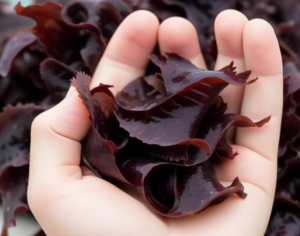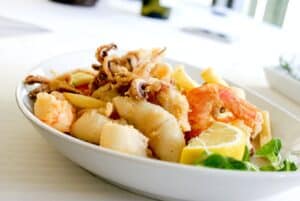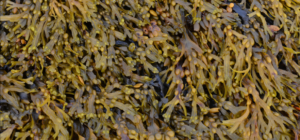Plant-based seafood alternatives are an exciting development in the area of sustainable food options. These products mimic the taste, texture, and nutritional value of traditional seafood, without environmental and ethical concerns.
What Are Plant-Based Seafood Alternatives?

Plant-based seafood alternatives use plant ingredients to replicate the flavor and experience of eating seafood. These alternatives often include ingredients like seaweed, legumes, and other plant proteins. They provide a similar taste and texture to fish, shrimp, and other seafood.
Why Choose Plant-Based Seafood Alternatives?
Environmental Impact
The traditional fishing industry has significant environmental consequences. Overfishing depletes marine populations, and bycatch harms unintended species. Fish farming leads to water pollution and habitat destruction. Choosing plant-based seafood alternatives helps us reduce these harmful impacts significantly.
Health Benefits
Plant-based seafood alternatives usually contain lower levels of saturated fats and no cholesterol. They offer essential nutrients such as omega-3 fatty acids, vitamins, and minerals. Additionally, these products do not contain mercury and other contaminants commonly found in seafood.
Ethical Considerations
Fishing practices often raise ethical concerns, including the treatment of marine animals and labor issues in the fishing industry. Plant-based seafood offers a cruelty-free alternative that also aligns with ethical consumption values.
Popular Plant-Based Seafood Products

Plant-Based Fish Fillets
Crafted from ingredients like soy protein, wheat gluten, and seaweed, these fillets offer a similar texture to traditional fish. You can use them in various recipes by baking, frying, or grilling, just like regular fish fillets.
Vegan Shrimp
Vegan shrimps mimic the taste and texture of real shrimp. They are made from konjac root and other plant-based ingredients and work perfectly in dishes like shrimp cocktails, stir-fries, and pasta.
Plant-Based Tuna
These are made from soy protein and flavored with seaweed which gives them a fish-like taste. Use it in salads, sandwiches, and sushi rolls.
How to Incorporate Plant-Based Seafood into Your Diet
Start Simple
If you’re new to seafood alternatives, start with simple recipes. Add plant-based fish fillets to your favorite fish taco recipe. Replace traditional shrimp with vegan shrimp in your stir-fry.
Explore New Recipes
Get creative with these seafood alternatives by exploring new recipes. Experiment with plant-based tuna in sushi rolls or vegan shrimp in a creamy Alfredo pasta. The possibilities are endless.
Make It a Habit
Incorporating plant-based seafood into your regular diet is easy. Start by replacing one or two seafood meals per week with plant-based alternatives. Over time, you’ll find yourself choosing these sustainable options more frequently.
Conclusion
Plant-based seafood alternatives offer a delicious and sustainable option for those looking to reduce their environmental impact and improve their health as well as make ethical food choices. As more innovative products become available, enjoying the flavors of the sea without the drawbacks of traditional seafood becomes easier than ever. Let’s embrace these alternatives and contribute to a healthier planet.





